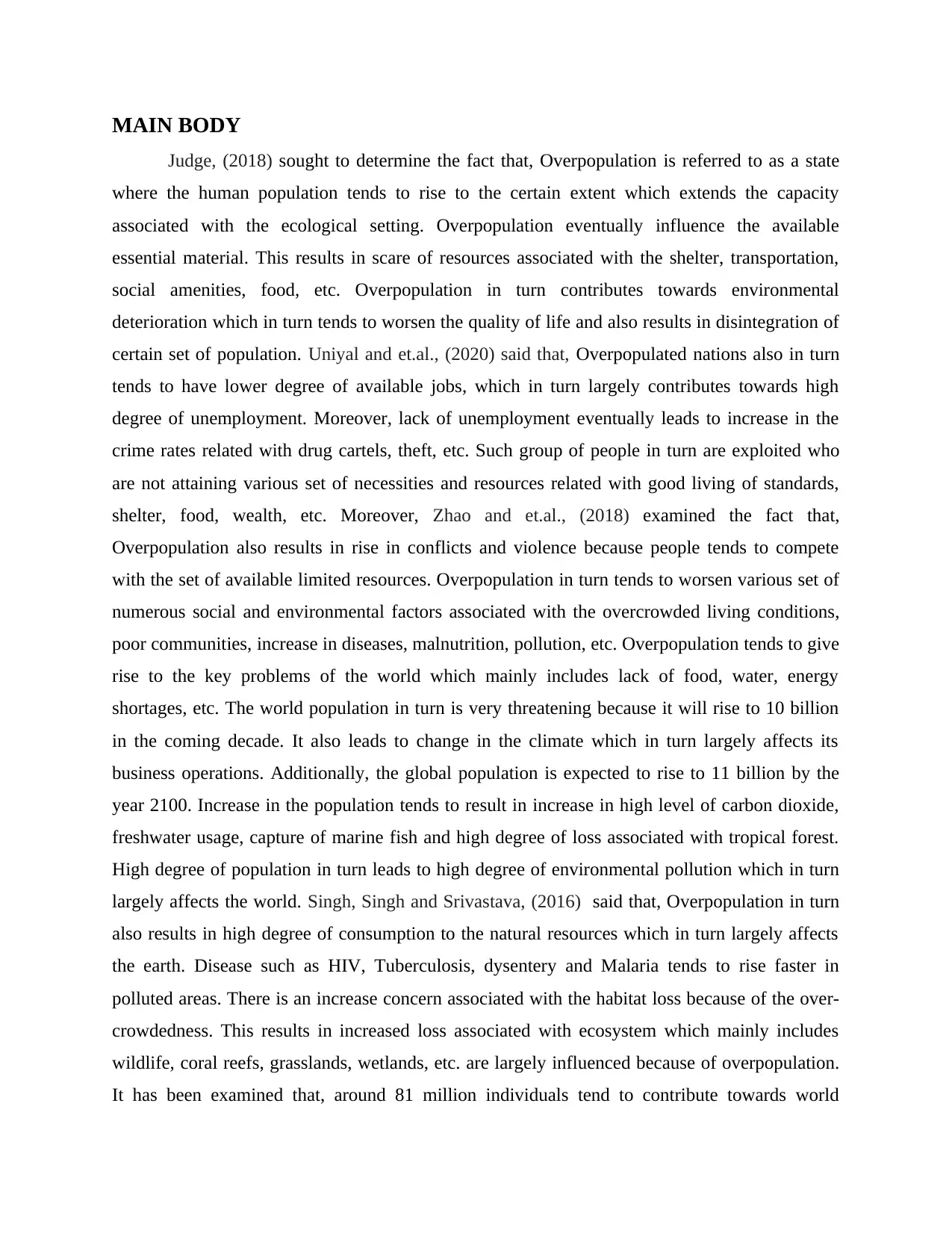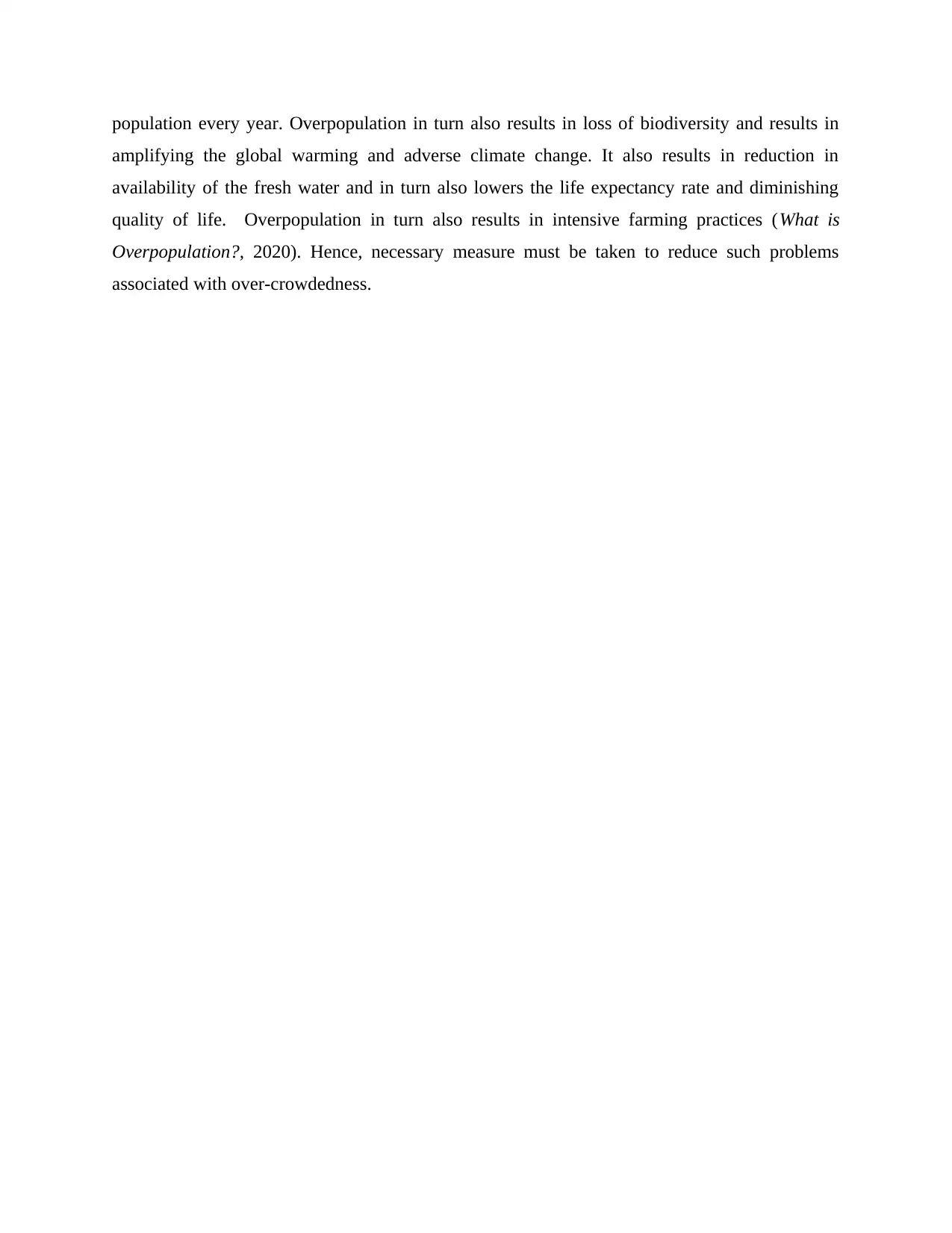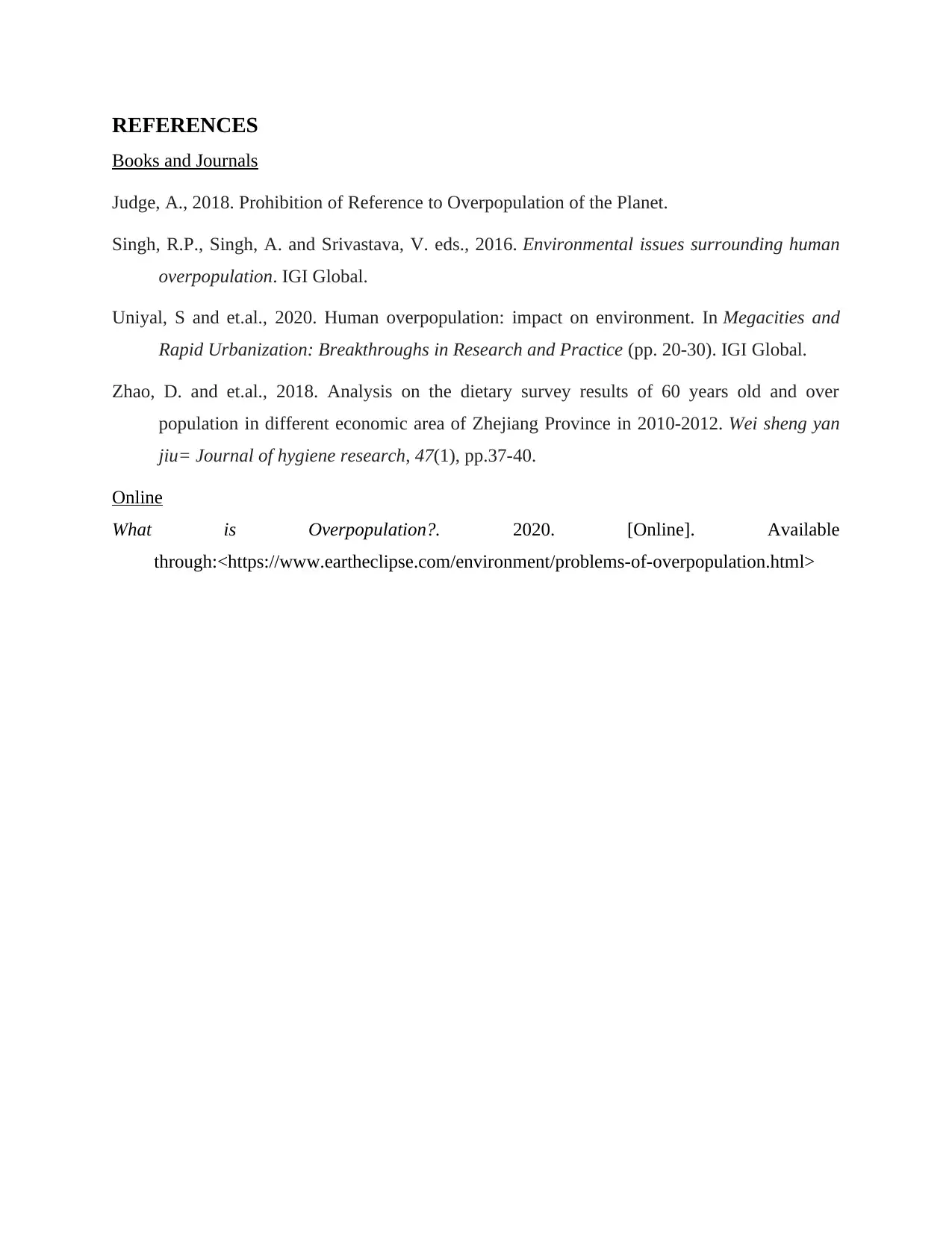A Comprehensive Analysis of Overpopulation and Its Global Impact
VerifiedAdded on 2023/01/12
|5
|745
|71
Essay
AI Summary
This essay examines the multifaceted issue of overpopulation, defining it as a state where the human population exceeds the ecological capacity. It explores the detrimental impacts, including resource scarcity in areas like shelter, food, and transportation, and the resulting environmental deterioration, leading to a lower quality of life. The essay references scholarly sources to highlight the links between overpopulation and increased unemployment, crime rates, and social conflicts. It also discusses the strain on limited resources, the exacerbation of environmental problems like pollution, and the potential for increased disease spread. The essay emphasizes the urgent need for measures to address overpopulation and its associated challenges, including the potential rise to 10 billion people in the coming decade and the rise of carbon dioxide, freshwater usage and loss of tropical forests. The essay concludes by underscoring the importance of understanding and mitigating the adverse effects of overpopulation on biodiversity, global warming, and overall quality of life, as well as the need for intensive farming practices.
1 out of 5












![[object Object]](/_next/static/media/star-bottom.7253800d.svg)